Moguls
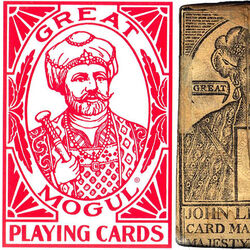
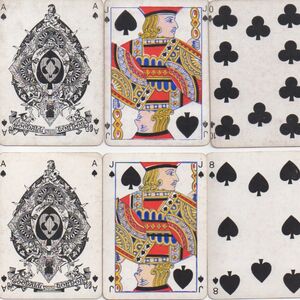
60: Some less common Goodall packs, 1875-95
There are some interesting packs from Goodall in the last quarter of the 19th century.
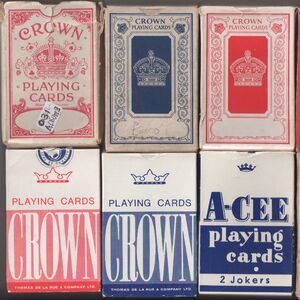
7: Brands and Packs
The introduction of brands commenced during the late 19th century as a development of the old qualities: Moguls, Harrys, Highlanders and Merry Andrews.
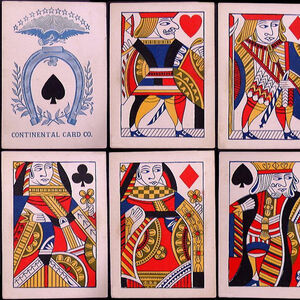
Continental Card Co
The Continental Card Company, 220 North Second Street, Philadelphia, started in 1874, manufacturing various qualities of playing cards, including Continental Steamboats, Manhattans, Continental Moguls, etc. Single-ended and double-ended decks are known, also a "Highest Trump" Joker.
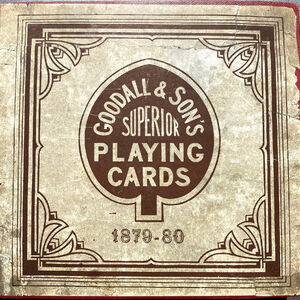
Goodall 1879-1880 Sample Book
Complete contents of a sample book by Goodall & Sons
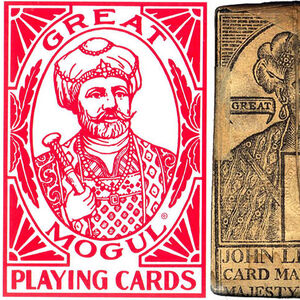
Great Mogul Playing Cards
The origins of the 'Great Mogul' brand playing cards.
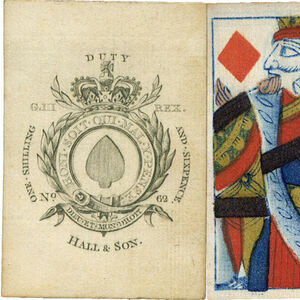
Hall & Son
Hall & Son
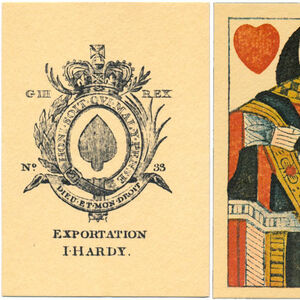
I. Hardy facsimile
Facsimile edition of 19th century I. Hardy Exportation deck complete with reproduction tax wrapper, c.1980s.
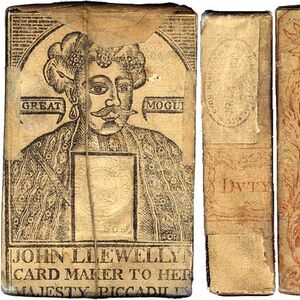
John Llewellyn, playing card manufacturer, London, 1778-1785
John Llewellyn, playing card manufacturer, London, 1778-1785
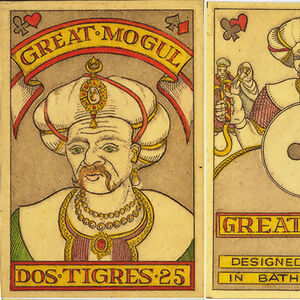
Karl Gerich No. 25: “Great Mogul”
'Great Mogul' branded playing cards designed and produced by Karl Gerich.
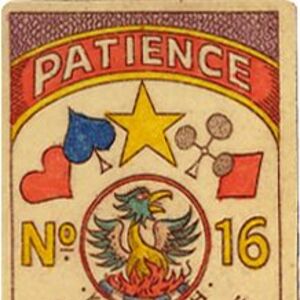
Karl Gerich No.16: “Patience Indien”
Karl Gerich's “Patience Indien No.16”, published in 1991, is adapted from Grimaud's “Whist Indienne” (c.1900). The double-ended courts are dressed in Arab garb.
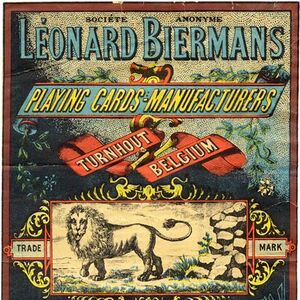
Léonard Biermans, Turnhout
Léonard Biermans had been employed by Brepols from 1871-1874 before opening his own playing card factory in 1875.
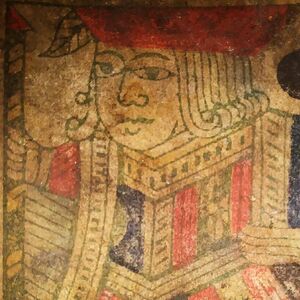
Reynolds c.1809-1885
Joseph Reynolds had been producing playing cards in the traditional method since c.1809.
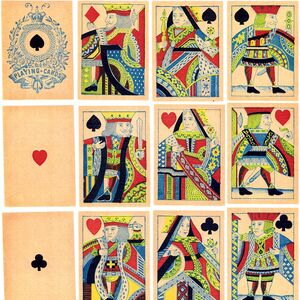
Swiss Mogul Cards, 1880-1890
English type 'Mogul' playing cards manufactured in Switzerland by John Müller for export to India, c.1880-1890.
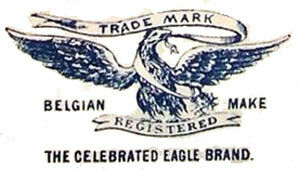
Van Genechten
A. Van Genechten ran a flourishing business, supplying various kinds of cards both inside the country and abroad including England, Spain, France, Denmark, South-East Asia, China and Japan.
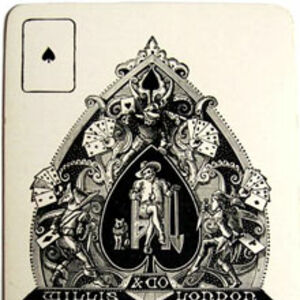
W. H. Willis & Co
Willis & Company was formed in 1869, having been preceded by Charles Steer at the same address (80 Long Acre, London), who also manufactured playing cards during the 1850s and 60s.
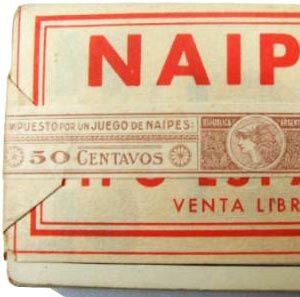
Wrappers
Playing cards were traditionally sold inside paper wrappers, which were usually thrown away.

